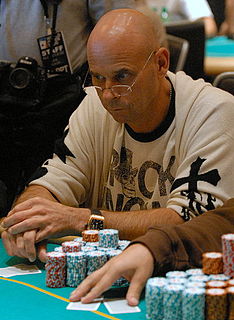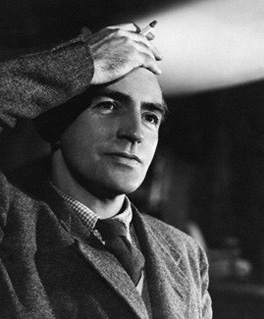A Quote by George F. Kennan
We should not lose ourselves in vainglorious sohemes for changing human nature all over the planet. Rather, we should learn to view ourselves with a sense of proportion and Christian humility before the enormous complexity of the world in which it has been given us to live.
Related Quotes
In overlooking, denying, evading this complexity--which is nothing more than the disquieting complexity of ourselves--we are diminished and we perish; only within this web of ambiguity, paradox, this hunger, danger, darkness, can we find at once ourselves and the power that will free us from ourselves. It is this power of revelation that is the business of the novelist, this journey toward a more vast reality which must take precedence over other claims.
The greatest human virtue bears no proportion to human vanity. We always think ourselves better than we are, and are generally desirous that others should think us still better than we think ourselves. To praise us for actions or dispositions which deserve praise is not to confer a benefit, but to pay a tribute. We have always pretensions to fame which, in our own hearts, we know to be disputable, and which we are desirous to strengthen by a new suffrage; we have always hopes which we suspect to be fallacious, and of which we eagerly snatch at every confirmation.
It is difficult to see ourselves as we are. Sometimes we are fortunate enough to have good friends, lovers or others who will do us the good service of telling us the truth about ourselves. When we don't, we can so easily delude ourselves, lose a sense of truth about ourselves, and our conscience loses power and purpose. Mostly, we tell ourselves what we would like to hear. We lose our way.
Pride is the switch that turns off priesthood power. Humility is a switch that turns it on . . . . Some suppose that humility is about beating ourselves up. Humility does not mean convincing ourselves that we are worthless, meaningless, or of little value. Nor does it mean denying or withholding the talents God has given us. We don't discover humility by thinking less of ourselves; we discover humility by thinking less about ourselves. It comes as we go about our work with an attitude of serving God and our fellowman.
Those who profit from adversity possess a spirit of humility and are therefore inclined to make the necessary changes needed to learn from their mistakes, failures, and losses. ... When we are focused too much on ourselves, we lose perspective. Humility allows us to regain perspective and see the big picture. ... Humility allows us to let go of perfection and keep trying.
We are not saints yet, but we, too, should beware. Uprightness and virtue do have their rewards, in self-respect and in respect from others, and it is easy to find ourselves aiming for the result rather than the cause. Let us aim for joy, rather than respectability. Let us make fools of ourselves from time to time, and thus see ourselves, for a moment, as the all-wise God sees us.
[Grace] is given not to make us something other than ourselves but to make us radically ourselves. Grace is given not to implant in us a foreign wisdom but to make us alive to the wisdom that was born with us in our mother?s womb. Grace is given not to lead us into another identity but to reconnect us to the beauty of our deepest identity. And grace is given not that we might find some exterior source of strength but that we might be established again in the deep inner security of our being and in learning to lose ourselves in love for one another to truly find ourselves.
Nature gets credit which should in truth be reserved for ourselves: the rose for its scent, the nightingale for its song; and the sun for its radiance. The poets are entirely mistaken. They should address their lyrics to themselves and should turn them into odes of self congratulation on the excellence of the human mind.
But it is important to realize we are all trapped in mental constructs, and so we separate ourselves from reality; the whole world loses its aliveness-or, rather, we lose our ability to sense that aliveness, the sacredness of nature. When we approach nature through the conceptualizing mind, we see a forest as a commodity, a concept. We no longer see it for what it truly is, but for what we want to use it as. It is reduced. This is how it becomes possible for humans to destroy the planet without realizing what they are doing.
Our Christian destiny is, in fact, a great one: but we cannot achieve greatness unless we lose all interest in being great. For our own idea of greatness is illusory, and if we pay too much attention to it we will be lured out of the peace and stability of the being God gave us, and seek to live in a myth we have created for ourselves. And when we are truly ourselves we lose most of the futile self-consciousness that keeps us constantly comparing ourselves with others in order to see how big we are.
When we find ourselves devoid of passion and purpose, the first thing we need to do is stop. But that's not easy. The rest of the world is zooming by at full speed. Left alone with ourselves, without a project to occupy us, we can become nervous and self-critical about what we should be doing and feeling. This can be so uncomfortable that we look for any distraction rather than allowing ourselves the space to be as we are.
The first of our senses which we should take care never to let rust through disuse is that sixth sense, the imagination. I mean the wide-open eye which leads us to see truth more vividly, to apprehend more broadly, to concern ourselves more deeply, to be, all our life long, sensitive and awake to the powers and responsibilities given to us as human beings.








































